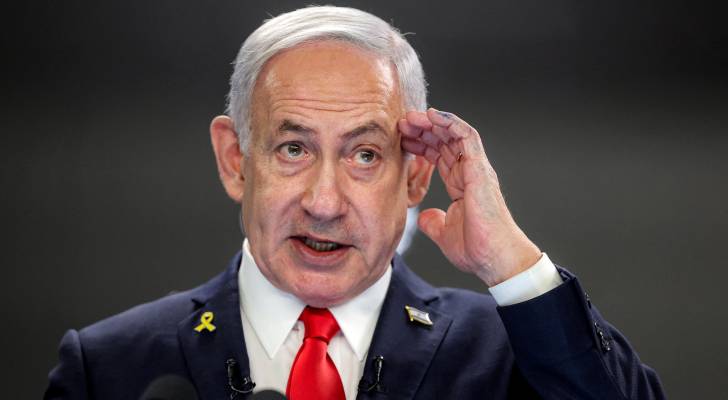'Israeli' Prime Minister Benjamin Netanyahu
Netanyahu orders “strong strikes” in Gaza as ceasefire teeters on the brink
Note: AI technology was used to generate this article’s audio.
In a development signaling the potential collapse of the fragile Gaza ceasefire, the office of 'Israeli' Prime Minister Benjamin Netanyahu announced Tuesday evening that he had instructed the military to carry out “strong and immediate strikes” across the Gaza Strip.
The decision came at the conclusion of urgent security consultations convened in response to what Tel Aviv described as “serious violations” of the ceasefire by Hamas, most notably the alleged firing that injured an 'Israeli' soldier in Rafah, southern Gaza.
Alongside the military orders, 'Israel’s' Kan News reported a major strategic decision: the expansion of areas under 'Israeli' military control in Gaza. Sources said Netanyahu is currently coordinating this plan with the United States, raising concerns over the future of the ceasefire and the risk of a full-scale return to war.
Read more: Hamas recovers body of 'Israeli' captive from tunnel
Ceasefire breaches cited as justification
According to 'Israeli' reports, the escalation followed a series of “serious violations” of the ceasefire. A senior security official told local media that Hamas operatives allegedly fired at an 'Israeli' force operating inside Gaza, with the most significant incident occurring in Rafah. The official claimed that fighters emerged from a tunnel and fired anti-tank projectiles at 'Israeli' troops, injuring one soldier.
In response, the 'Israeli' military launched airstrikes on what it described as “terrorist targets,” including buildings and tunnel openings. The army said these sites posed a direct threat to its forces on the ground. Officials also warned that the military is preparing for “wider attacks in the coming hours” in retaliation for what it called serious, unacceptable violations of the ceasefire.
Strategic expansion: Coordinating with the US
In a significant strategic development, Kan News reported that 'Israel' plans to expand the territory under its military control in Gaza, moving beyond previously agreed “yellow lines” or buffer zones established under the ceasefire framework. Netanyahu is reportedly consulting with US officials to coordinate this decision, raising questions about the extent of American support for such a unilateral move and potentially explaining the Prime Minister’s confidence in pursuing a major operational shift.
Fragile ceasefire on the edge
These developments put the ceasefire signed in Egypt's Sharm el-Sheikh, which had begun initial steps for prisoner exchanges, at serious risk. Tensions had already been high, particularly after Hamas’ military wing, the Al-Qassam Brigades, delayed the handover of the body of 'Israeli' captive Amriam Cooper in protest of what it called ongoing 'Israeli' violations.
Tuesday’s escalation, including the order for strong strikes and the strategic expansion of military control, shifts the situation from “mutual violations” to a potential collapse of the ceasefire. Analysts warn the region is now entering a dangerous cycle of escalation that could lead to the resumption of full-scale war in Gaza within hours.




